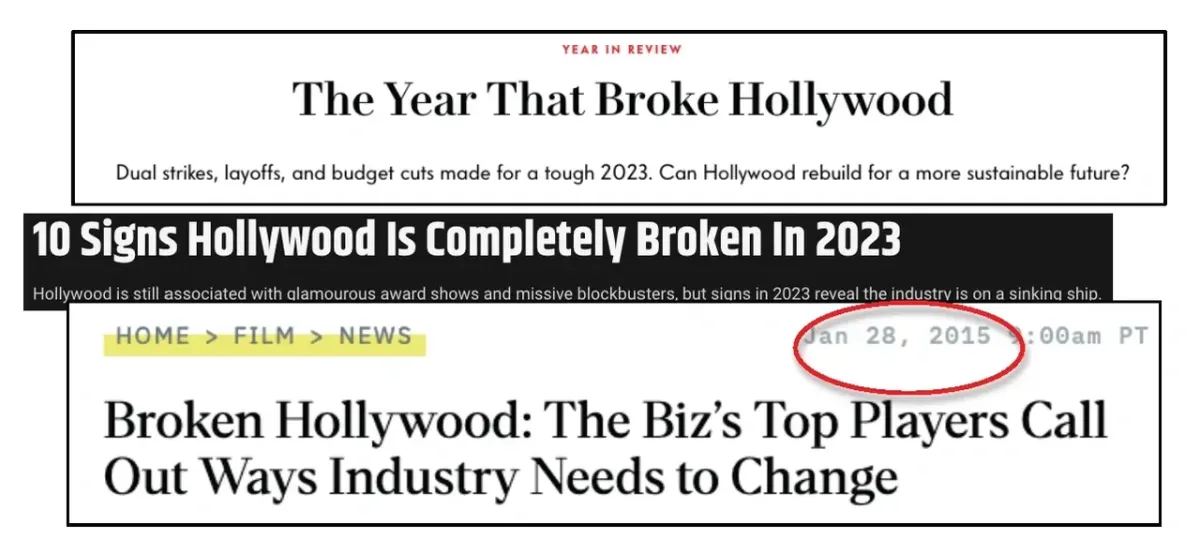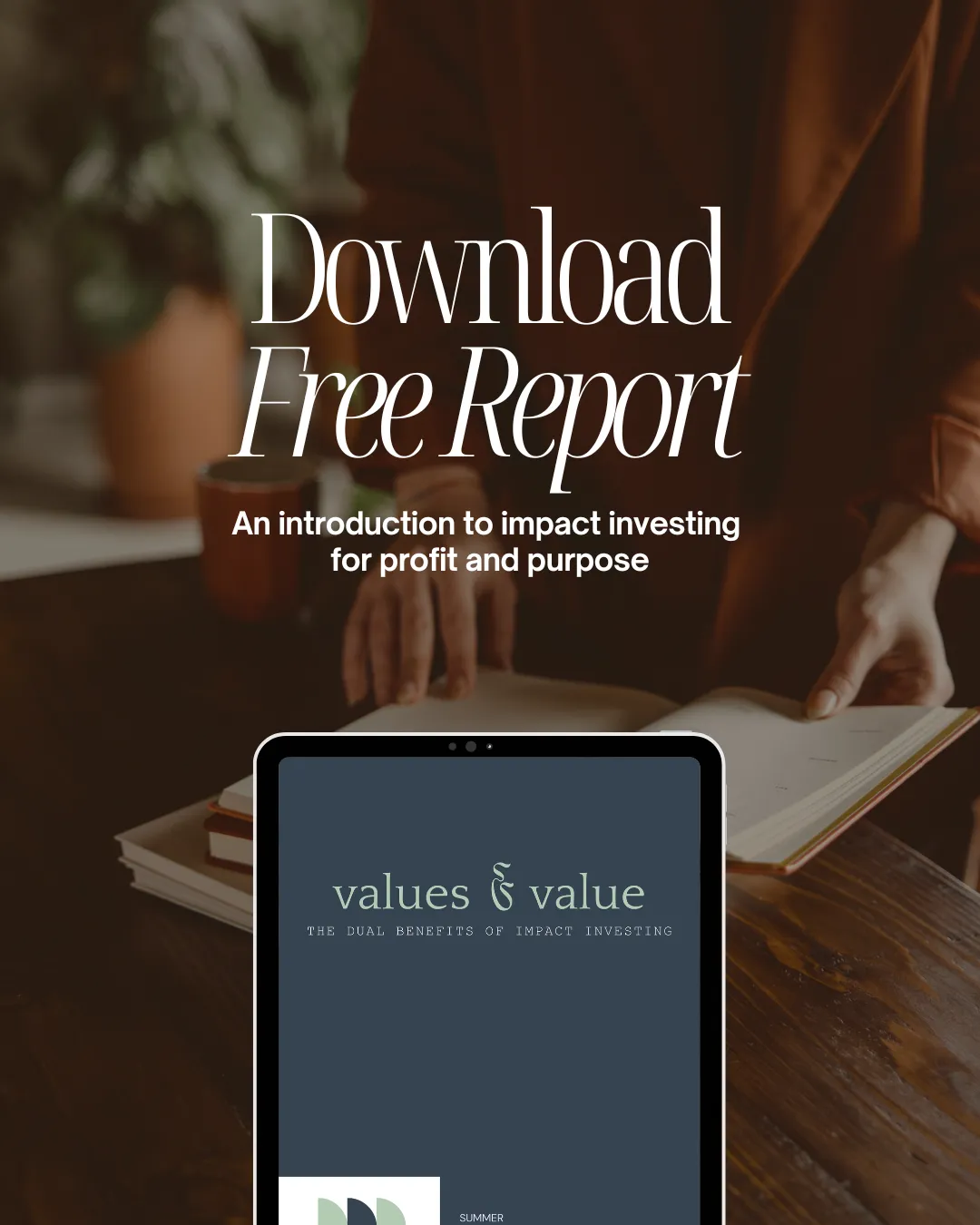
Changing the Headlines of the Entertainment Industry

April 23, 2024|Hollywood Headlines
The past couple of weeks have seen a plethora of postmortem reporting on the state of Hollywood after the strikes and quarterly earnings; and as per usual, most headlines are some version of “Hollywood is Broken.”
I can’t stand it.
When I wrote my book last fall, I included a snapshot of a google search that had dozens of headlines claiming this same thing; some went back over 10 years. In other words, the same headlines year-after-year, yet the industry perseveres.
Why? Because humans live and breathe stories everyday and count on them for escape, entertainment, catharsis and communication. Without stories there is no understanding.
From Harper”s Bazaar, to Bloomberg and all of the industry trades in between, April has brought showers of relentless head-scratching as to how to fix an industry that has been in transition since inception over a hundred years ago.
Participate Media’s closing has exacerbated the redundant headlines and reporting. One industry trade writer actually had the audacity to claim that Participant shut down because there were too many other companies mirroring their business model. Just a tiny bit of research would’ve shown this writer that a myriad of things went into that decision, some of which we may not ever know the full detail from Jeff Skoll’s inner monologue.
Aside from the fact that it’s journalism that seems to be broken, or at least they’ve lost the ability to craft original headlines, the status of Hollywood business is that it’s in transition. As it has been countless times before.
One thing for sure is, Participant Media closing does not mean doom and gloom for impact films, or indie films and entertainment.
No one likes to see a production company shut down, especially an independent film studio that is beloved or even an offshoot of a major studio. I’ve been employed in both of these when they’ve shut down and it’s never a pleasant day even when you know it’s coming.
But there are many factors that go into these decisions, and very rarely are they a reflection of the industry as a whole. In the case of Participant Media, its founder and CEO Jeff Skoll has not been an active “participant” in the day-to-day running for sometime; for various personal and professional reasons he left others in charge. He has billions of dollars — it’s not as if he was bankrupt. He’s still going to run the library of all of the wonderful films that they made over the years, it’s just no longer going to be footing the bill. But they hadn’t been footing the bill for quite some time; the past several years Participant has only come in with partial funding for the films that had their name on them. As much as I admire the intent behind the content that Participate Media helped bring to life, the actual impact of these films could’ve been better.
Like most documentaries or narrative films that are heavy-handed about an issue they tend to limit their reach because most people that go see them are already in tune with the issue. In other words, they’re preaching to the choir. That is the problem with “cause cinema” in general. However, it doesn’t mean that Hollywood can’t make an impact and entertain at the same time. Participant certainly made an impact in awareness. Where I think they and others in the space could go further is making an impact in the lives of the people who consume the stories.
Every business sector leverages some form of impact investing (that sees healthy returns); every business sector except the entertainment sector.
I like to use a case study between AN INCONVENIENT TRUTH (2006), which Participant produced, and THE DAY AFTER TOMORROW (2004). AN INCONVENIENT TRUTH was extremely successful for a documentary bringing in just shy of $50MM at the box office, and earning all kinds of awards. While it brought media awareness, it didn’t have a measurable environmental impact. THE DAY AFTER TOMORROW brought in over a half $1 billion in box office money, and a study among Ivy League Universities showed that as a result of seeing that film, enrollment in environmental studies increased, and according to Yale, the film also increased consumer perceptions on how their day-to-day activities impacted climate change. Pretty good for popcorn fare. But, imagine if ten-cents of every ticket sold went to scholarships for people who could not afford these academic endeavors or even just went to fund research into the effects of climate change. Ten-cents of every ticket sold would have been over $9MM, that by now, 20-years later — we may be in a much different place thanks to that investment.
Another case in point more recently, THE SOUND OF FREEDOM had its audiences screaming from the rooftops to “save the children, that people must see this important film for the sake of the children.” Yet not one-cent of the hundreds of millions of dollars that film made went to actually help victims of child trafficking.
Participant Media and Hollywood in general are well intentioned in their philanthropic endeavors, but until the stories we tell actually do more than bring brief awareness — until they actually support change within the very communities and issues that they focus on, we’ve not made a strong enough impact.
In the case of participant media, when one door closes another one opens; Skoll said as much in his letter that announced the closing. And when it comes to navigating the transition of the business in general, I believe that that open door can lead to a big answer.
Times of transition bring with them, tremendous opportunity, and I believe that that door left open by Participant’s closing is the opportunity to reinvent the way we look at the business film entertainment, by coming at it from a more holistic way. A way that replaces the waning impact of relying on IP to do the heavy lifting.
There is plenty of data to support the fact that consumers will always choose the product or service that they feel aligns with a value, whether that is contributing to a nonprofit, or how the manufacturers run their business. Paul Newman realized this fact decades ago and his name lives on in grocery stores across the country and as a result $600 million has been donated to good causes since 1982. Hollywood is great at philanthropy, but how no one has tied this trait to the marketing of their core product of filmed entertainment is ridiculous.
Let’s say, for example, you have a romantic comedy where the protagonist is forced to move back to her hometown because she needs to run the family business, and she ends up falling in love with her competition. It sounds like a pretty familiar premise with not a lot of reason to invest in it unless you have the ability to cast Sandra Bullock. But, what if you were able to bring this project to a producer and say, ‘I have aligned with a small business association to help get out the word about this film, all they require is to give a portion of net proceeds to their fund for female entrepreneurs.’ Then show this producer that this initiative through the organization brings a database of women entrepreneurs. That is the same affect that IP brings to the table. It’s all about bringing an audience with the idea.
By thinking outside of the box in how we engage the audience, so that everyone benefits, everyone will benefit more, and that will surely help write a new headline.
WHAT PEOPLE ARE SAYING
© Copyright 2022. Company Name. All rights reserved.
